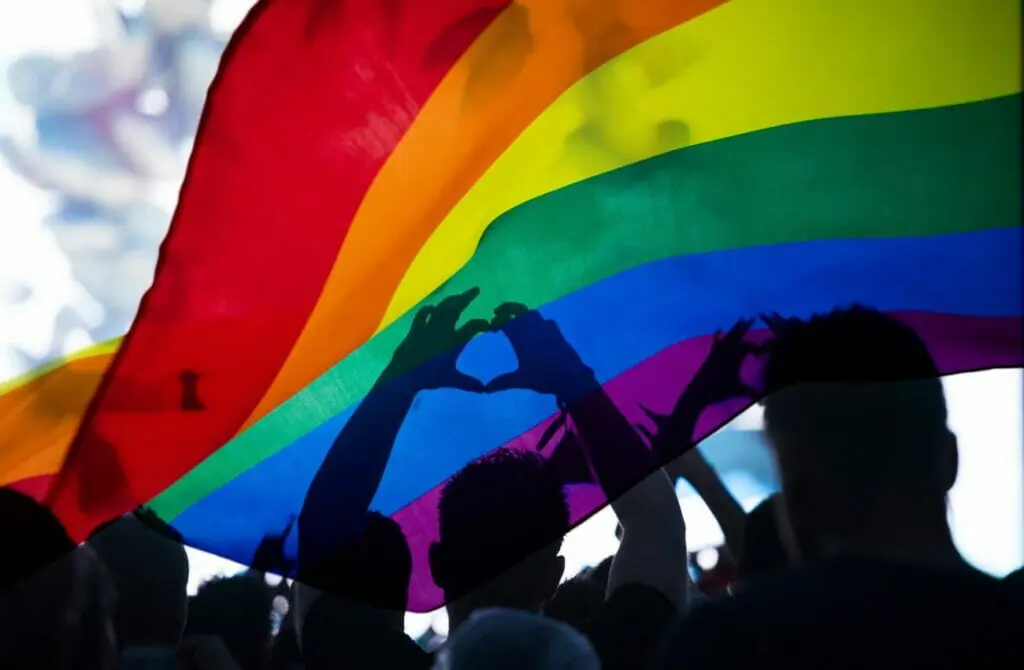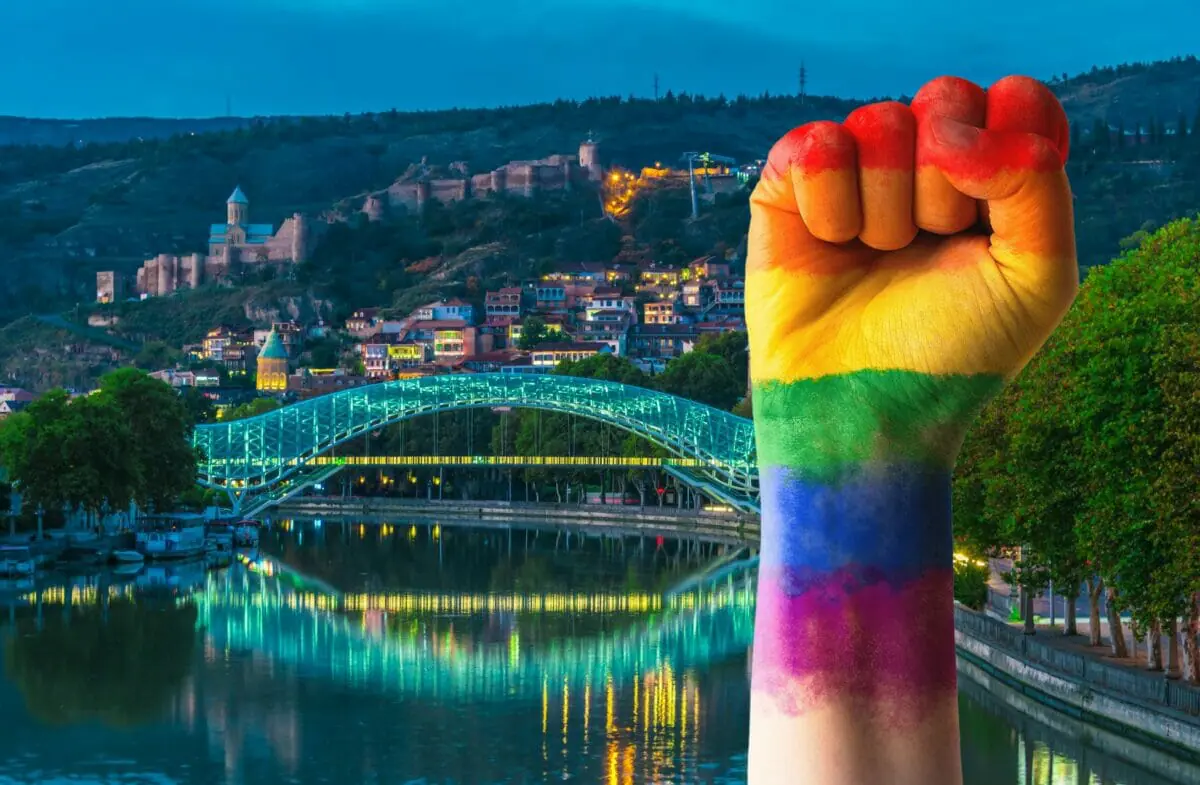Georgia, a country located in the Transcaucasia region, has taken significant strides towards recognizing and protecting the rights of its LGBT community. As one of the few former Soviet countries to directly prohibit discrimination against all LGBT people in both legislation and labor practices, Georgia sets a positive example for other nations in the region.
However, despite legal advancements, LGBT individuals still face challenges from societal prejudice and conservative attitudes that can create a hostile environment for local citizens and tourists alike.
For those planning to visit or live in Georgia, staying informed about the current legal protections and societal attitudes toward the LGBT community is crucial. While general public opinion may not always align with legislative progress, it is important to be aware of resources and advocacy groups available to assist in navigating this unique cultural landscape.
Some of these organizations include the Tbilisi Pride and the Equality Movement, which both work tirelessly to promote LGBT rights and foster a more tolerant society in Georgia.
It is essential to remember that situations can change rapidly, and information may become outdated. Before traveling to or living in Georgia, it is advisable to seek current advice regarding the local atmosphere for LGBT individuals. Additionally, remaining vigilant and cautious is key, as bad actors exist in every country, and navigating the complexities of Georgia’s evolving stance on LGBT rights requires constant attention and foresight.
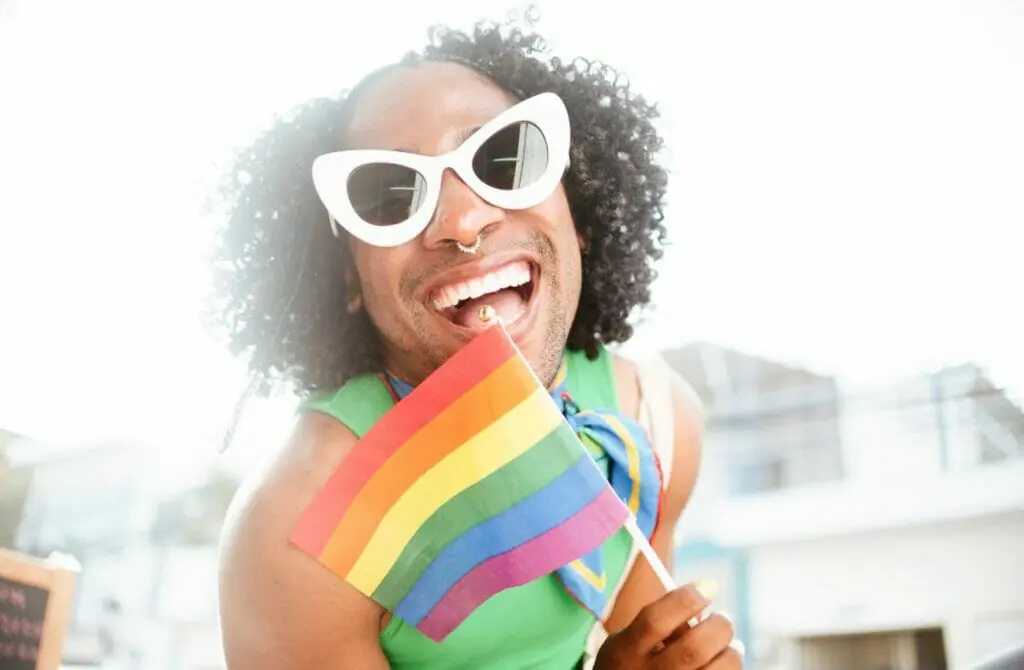
History Of LGBT Rights In Georgia
Georgia has a complex history with regard to LGBT rights. For centuries, homosexual acts were condemned by the Georgian Orthodox Church, which played a significant role in shaping societal attitudes. However, during the Soviet Union era, homosexuality was criminalized, further marginalizing the LGBT community.
Following the dissolution of the Soviet Union, Georgia declared independence in 1991 and gradually started to decriminalize homosexuality. In 2000, Georgia removed the provisions that criminalized consensual same-sex relationships from its criminal code. This marked an essential step in the advancement of LGBT rights in the country.
As Georgia progressed towards European integration, the country began taking measures to protect the rights of the LGBT community. In 2006, the labor code was amended to prohibit discrimination based on sexual orientation. Later, in 2014, the Law on Elimination of All Forms of Discrimination was adopted, which explicitly included protections against discrimination based on sexual orientation and gender identity.
Despite legal advancements, the social situation for LGBT individuals in Georgia remains challenging. Owing to the influence of conservative values and the Orthodox Church, there is a persistent negative attitude towards the LGBT community, leading to discrimination and violence. Local activists and LGBT advocacy groups, such as the Georgian Equality Movement, work tirelessly to promote tolerance, education, and support for the LGBT community.
For travelers, it is essential to remain vigilant and stay informed about the current situation for LGBT individuals in Georgia. While the legal framework may have improved, societal attitudes can still pose a risk to the safety and well-being of the LGBT community, both locals and tourists. Consulting with reputable sources and taking the necessary precautions can make a significant difference in ensuring a safe and positive experience for LGBT individuals visiting the country.
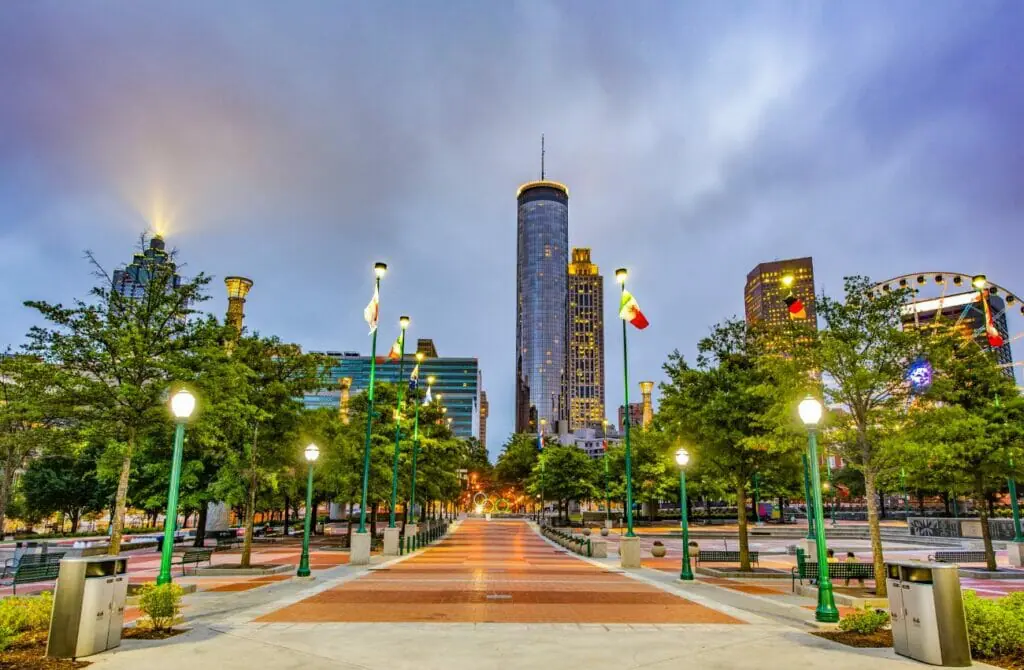
The LGBT Legal Situation In Georgia
In Georgia, homosexuality is legal, but same-sex marriage is not recognized. The nation has made strides in recent years to enact legislation to improve the rights of its lesbian, gay, bisexual, and transgender (LGBT) citizens.
However, societal attitudes towards LGBT individuals and issues remain overwhelmingly conservative, as evidenced by a 2021 International Social Survey Programme (ISSIP) study, which showed that 84% of Georgians consider same-sex relations between adults as always wrong, the highest score in Europe.
The Georgian government has adopted multiple laws to address discrimination based on sexual orientation and gender identity. For example, the antidiscrimination law amended in 2014 provides legal protection against discrimination in areas such as employment, housing, and access to public services. However, enforcement of these laws remains weak, and significant barriers to equality persist.
Important note for travelers: The legal situation described above primarily affects the local population rather than tourists. However, it is crucial to remember that the situation can change quickly and that information—including this article—might become outdated. Always seek updated advice before traveling, and remain vigilant against potential bad actors, as they exist in every country.
Several LGBT advocacy groups in Georgia work towards creating a more inclusive and equal society. One well-known organization is the Tbilisi Pride, which held its inaugural Pride Parade in July 2019. The parade faced considerable pushback from conservative and far-right groups, but it ultimately took place despite the challenges.
In conclusion, although Georgia has made legislative progress regarding LGBT rights, significant hurdles remain on the path to true equality. Travelers and locals alike should maintain vigilance in understanding the current situation and stay informed of any potential changes.
Steps to protect oneself should be taken if deemed necessary, whether that pertains to legal support, accessing safe spaces, or simply maintaining awareness of one’s environment. Ultimately, the push for LGBT rights and protections in Georgia continues, and progress depends on the collaboration of government officials, advocacy groups, and global allies.
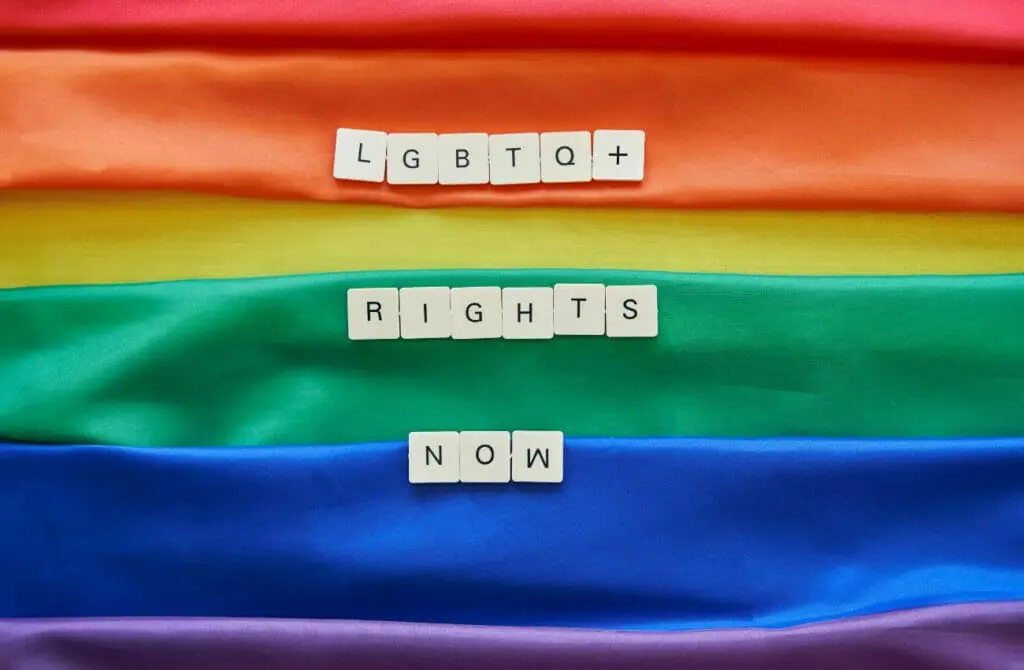

The LGBT Social Situation In Georgia
In Georgia, the social situation for the LGBTQ+ community can be rather challenging. It is widely reported that discrimination and lack of legal protection are major issues for LGBTQ+ individuals. According to the 2021 International Social Survey Programme (ISSIP) study, 84% of the Georgian public thinks that sexual relations between two adults of the same sex are always wrong, which is the highest score in Europe.
The Georgian Orthodox Church plays a significant role in the social attitudes towards LGBTQ+ individuals in the country, often contributing to a more conservative and hostile environment for the community. In terms of legal protection, there are steps taken by the government of Georgia, such as joining the Council of Europe and committing to protect human rights, including those of LGBTQ+ individuals. However, implementation of these commitments might not always be effective on the ground.
Despite certain legal protections, LGBTQ+ individuals in Georgia still face significant discrimination in various aspects of life, including employment. This discrimination is often exacerbated by factors such as race, ethnicity, or religious background. Human rights organizations, such as Identoba, work to advocate for LGBTQ+ rights in the country, but their efforts may face significant challenges and even violence from opposing groups.
There are reports of impunity for those who commit acts of violence against the LGBTQ+ community in Georgia, which is a concerning factor for both locals and tourists alike. It is important for anyone visiting or living in Georgia to remain vigilant and aware of potential threats, as situations can change rapidly, and information might become outdated. Seeking current advice before traveling or making decisions about your personal safety is essential.
In conclusion, it is important to recognize the social situation for LGBTQ+ individuals in Georgia as a challenging one, with discrimination, lack of adequate legal protection, and even violence being common issues faced by the community. Staying informed, connected with local advocacy groups, and aware of one’s surroundings can help mitigate potential risks and ensure personal safety.
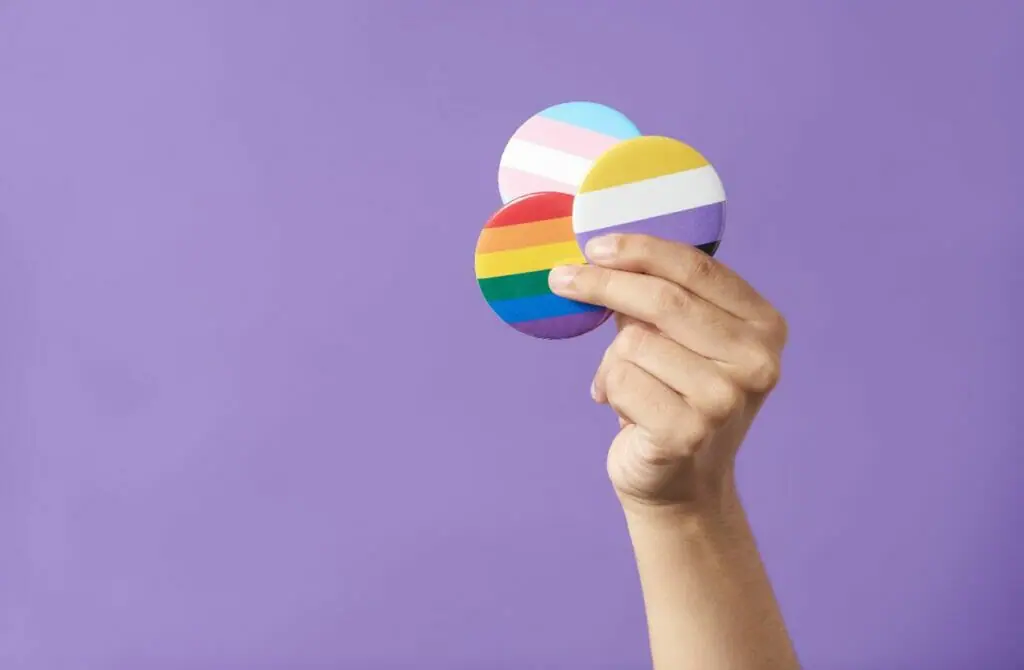
Trans Rights In Georgia
In Georgia, transgender people face multiple challenges and lack of recognition in various aspects of their lives. While Georgia has made some strides in terms of LGBTQ+ rights, the rights and protections for transgender individuals may fall short in areas such as healthcare, legal gender recognition, and social acceptance.
Healthcare and gender-affirming care: Access to comprehensive healthcare services, including gender-affirming care and transition-related procedures, is limited in Georgia. There is a lack of specialized healthcare professionals, and many transgender people may need to seek medical care outside of the country.
Legal gender recognition: Georgia currently does not have a comprehensive legal framework for recognizing transgender people’s gender identity, which can pose challenges in accessing education, healthcare, and employment. It is crucial for transgender individuals to have their gender identity recognized on official documents to fully exercise their rights and protections.
Equal age of consent and gender reassignment: It is important to note that Georgia has an equal age of consent for same-sex and different-sex partnerships. However, there is no clear legal pathway for gender reassignment in the country. This can be difficult for transgender people seeking to align their physical appearance with their gender identity, further marginalizing this community.
LGBTQ+ rights advocacy: Several organizations focus on advocacy and support for LGBTQ+ rights, including Georgia Equality and the ACLU of Georgia. These organizations work to improve the lives of LGBTQ+ people, including transgender individuals, by fighting against discrimination and advocating for policy changes.
Safety and precautions: As with any country, the situation for transgender and LGBTQ+ individuals in Georgia can change rapidly and be impacted by local political or social developments. It is essential for transgender people, both local and tourists, to remain vigilant, research updated information, and seek advice from advocacy organizations and local communities before making decisions related to travel or day-to-day activities.
In conclusion, while Georgia has taken some steps towards LGBTQ+ rights, there is still much progress to be made, particularly in terms of recognition and protection for transgender individuals. Ensuring equal access to healthcare, legal recognition of gender identity, and social acceptance is crucial for the well-being and safety of transgender people in Georgia.
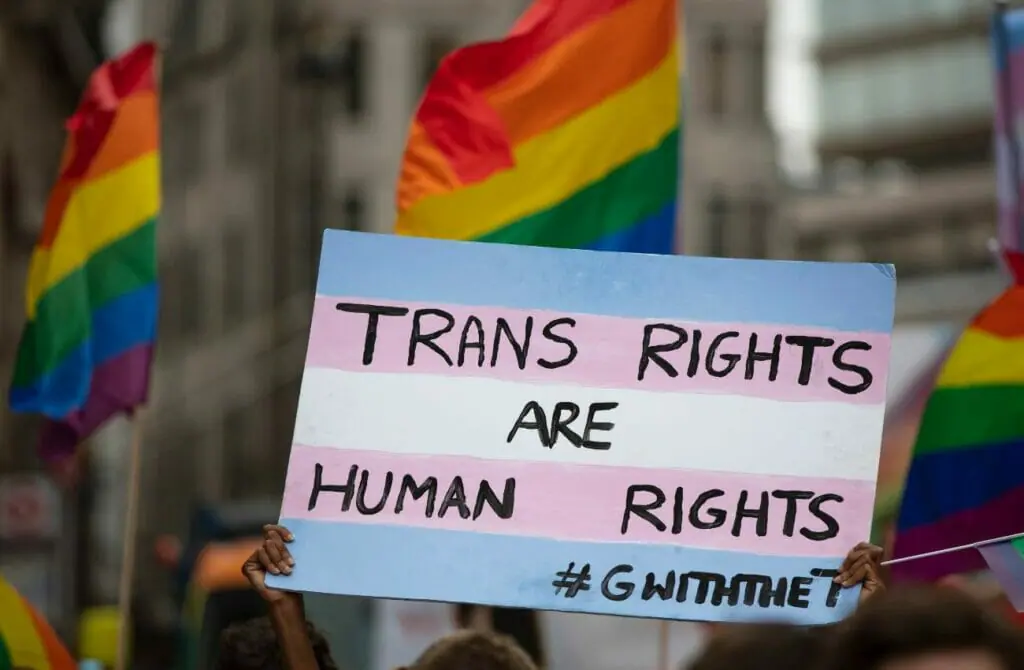

The Future For The Queer Community In Georgia
The future of LGBT rights in Georgia (the country) is gradually evolving, but challenges remain. Between local communities’ attitudes and legal protections, there is a wide scope for improvement. While travel in Georgia is generally safe for tourists regardless of sexual orientation or gender identity, it’s vital for the LGBT community to remain vigilant and informed about the current situation.
LGBT advocacy groups in Georgia are working tirelessly to advance fairness, safety, and opportunity for lesbian, gay, bisexual, transgender, and queer people. The focus on public education and awareness-seeking campaigns has contributed to a slow shift in public perceptions and attitudes toward LGBTQI individuals.
However, much work still needs to be done, particularly in areas related to legal protection and public policy.
In order to ensure that members of the LGBT community are protected, both locals and tourists should stay informed about the latest news and updates regarding Georgia’s LGBT rights situation. It is essential for visitors to understand that circumstances can change quickly and that they should always seek current advice before traveling.
Moreover, individuals should be aware of local advocacy groups and organizations working to improve the situation for the LGBTQI community. These organizations can often provide valuable resources and advice to those seeking help and guidance.
Lastly, it is important to remember that, like in any country, there will always be individuals who may hold prejudiced views or engage in discriminatory acts. Therefore, members of the LGBT community in Georgia, as well as tourists visiting the country, should remain cautious and alert to ensure their safety and well-being.
The future of LGBT rights in Georgia will continue to evolve as legal frameworks and public attitudes change. Progress is being made, but the road ahead remains long and complex.

Protect Yourself While Travelling In Gay Georgia
When visiting Georgia, it is essential to be aware of the country’s attitudes and laws surrounding LGBT rights, as they can greatly impact both local residents and tourists alike. Despite some progress, such as no restrictions against same-sex couples seeking to adopt, the majority of the Georgian public (84%) thinks that sexual relations between two adults of the same sex are always wrong, which is the highest score in Europe.
As a traveler visiting the capital Tbilisi or other areas in Georgia, it is crucial to respect local customs while exercising caution to ensure personal safety. While the LGBT community in Georgia might face significant challenges, international visitors with valid visas can generally enjoy their stay without major issues. However, it is advisable to remain discreet about one’s sexual orientation or gender identity and avoid openly displaying affection.
Situations and the political landscape can change rapidly, and the information provided here may become outdated. Therefore, it is essential to seek current advice before traveling to Georgia and stay updated on any human rights developments, legal changes, or significant events, such as presidential elections, that may affect the conditions for the LGBT community.
It is always a good idea to connect with reputable LGBT advocacy groups, either locally or internationally, to receive accurate and up-to-date information regarding LGBT rights in Georgia. These organizations can offer invaluable support and help guide you to safe spaces and events tailored for the community.
Lastly, remember to remain vigilant while traveling in any country, as there can always be bad actors that may pose a risk. Despite potential challenges, moving forward with caution, respect, and awareness of Georgia’s attitudes toward LGBT citizens can help ensure a safe and enjoyable experience for all visitors.
